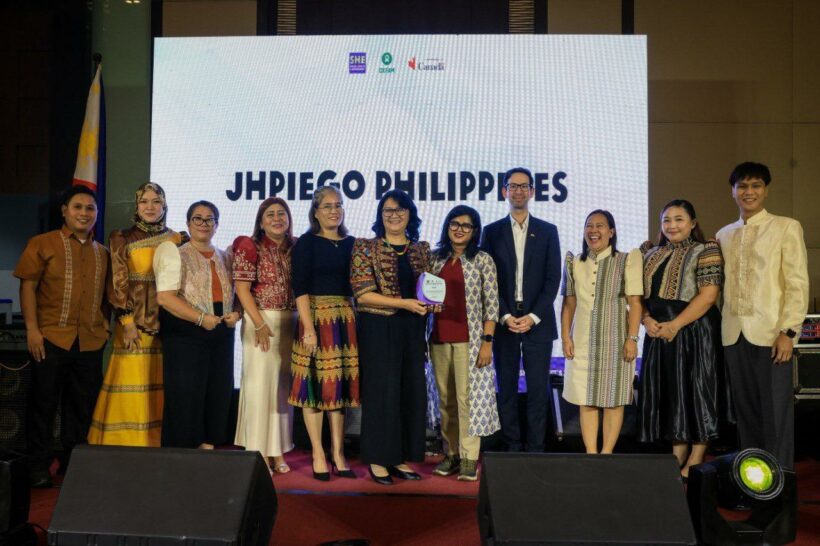Metro Manila, Philippines- —The Sexual Health and Empowerment (SHE) Project marked its impactful six-year journey with a vibrant closeout event titled “YES SHE DID! A Celebration of the Sexual Health and Empowerment (SHE) Project’s Journey Towards Change” at the Crowne Plaza Manila Galleria on October 24, 2024.
Attended by representatives from various organizations, government agencies, and community members, the celebration highlighted the significant strides made in advancing sexual and reproductive health and rights (SRHR) and preventing gender-based violence (GBV) among women and girls in marginalized and conflict- affected regions of the Philippines.
With the participation of 11 Women’s Rights Organizations and spanning Regions V (Bicol), VIII (Eastern Visayas), IX (Zamboanga Peninsula), X (Northern Mindanao), XIII (Caraga), and the Bangsamoro Autonomous Region of Muslim Mindanao (BARMM) , the SHE Project directly reached over 86,000 individuals, including peer educators, community facilitators, GBV watch groups, health service providers, and community leaders.
Rhoda Avila, Acting Executive Director of Oxfam Pilipinas, opened the program, emphasizing the project’s community-centered approach. “The SHE Project has proven that true empowerment happens when communities come together to drive change. Today, we celebrate not just the milestones we’ve reached, but the lasting impact we’ve made in women’s lives across the Philippines,” Avila remarked.
“Canada is proud to stand alongside the communities, advocates, and leaders who made this project possible. The SHE Project is a testament to what can be achieved when we prioritize women’s rights and health, paving the way for healthier, more equitable communities,” added John Lok, Counselor (Development) and Head of Cooperation at the Embassy of Canada to the Philippines , who acknowledged the collective efforts that propelled SHE forward.
The event also included a presentation of the End of Project Evaluation (EOP), which showcased the positive outcomes and offered insights for future SRHR programs. National Government Agencies (NGAs), including the Department of Health (DOH), the Philippine Commission on Women (PCW), and the Department of Social Welfare and Development (DSWD), shared their ongoing commitment to SRHR and GBV prevention in the country. In recognition of collaborative efforts, key knowledge products were formally handed over to these agencies, ensuring the project’s legacy would continue to guide SRHR advocacy.
Dr. Ingrid Magnata, Country Program Manager of Jhpiego Philippines, reflected on SHE’s legacy. “The SHE Project empowered communities to take control of their health, break down barriers, and create safe spaces for women and girls. Our journey may be complete, but the impact of SHE will resonate for years to come,” said Dr. Magnata.
The event celebrated SHE’s journey through a series of highlights, including the launch of the SHE Coffee Table Book, a compilation of real-life success stories, which serves as a tangible legacy of the project’s impact. The program culminated in a Partner Recognition segment, honoring individuals and organizations for their contributions.
The SHE closeout event was a testament to resilience, collaboration, and empowerment, setting the stage for the continued advocacy for SRHR and GBV prevention in the Philippines.
About the SHE Project:
Led by Oxfam and funded by Global Affairs Canada, the Sexual Health and Empowerment Project (SHE) aims to empower women and girls to secure their sexual and reproductive health and rights (SRHR) in six disadvantaged and conflict-affected regions of the Philippines.
SHE works to improve knowledge and awareness of SRHR, including the prevention of gender-based violence (GBV), particularly among women and girls. Jhpiego, a global health leader affiliated with Johns Hopkins University as a technical partner, enhances the capacity of public and private health systems to deliver comprehensive, gender-responsive SRHR services. This includes training health providers, upgrading youth-friendly health facilities and improving the management/coordination of SRHR and GBV services.






